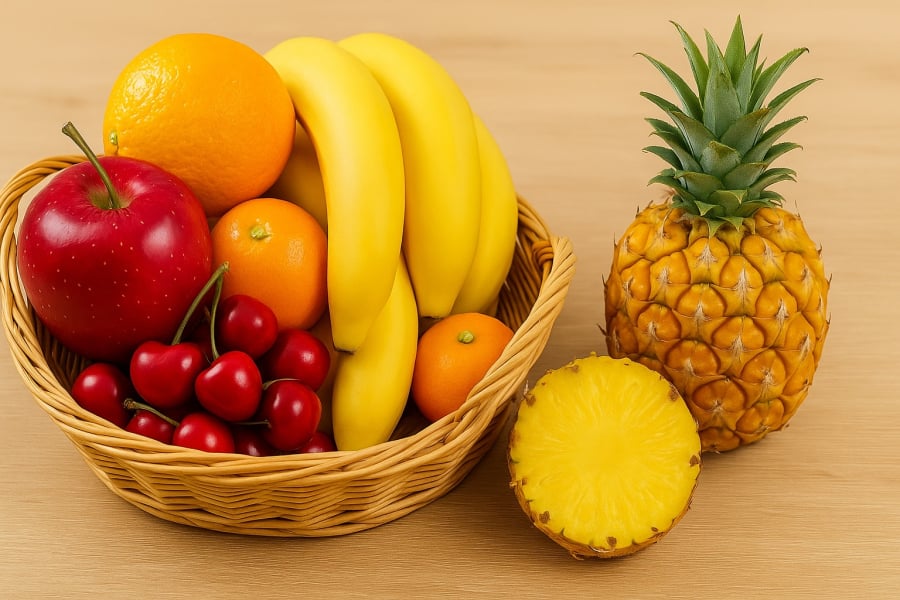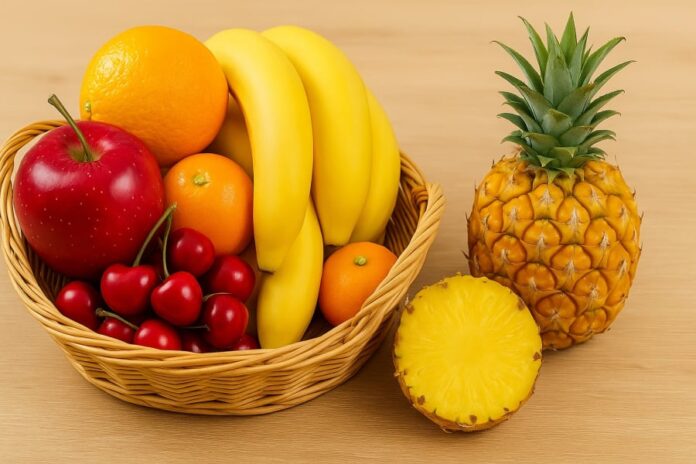Gout and the Dangers of High Uric Acid: The Role of Dietary Habits
If you’ve ever witnessed a loved one suffering from a gout attack, you understand the excruciating pain it entails. The swelling and intense pain in the joints of the hands and feet are not experiences anyone wishes to endure.
Dr. Nguyen Trong Hung, from the National Institute of Nutrition, shared with VnExpress that if uric acid levels in the blood remain high for an extended period and are not effectively filtered by the kidneys, urate crystals will form and deposit in the joints, causing inflammation and pain. Furthermore, there is a risk of these crystals accumulating in the kidneys and forming stones.
The human body is inherently self-regulating and capable of self-healing if we learn to listen and provide the necessary support. Incorporating suitable fruits into our daily diet not only helps purify the blood but also significantly reduces the risk of gout recurrence and kidney stone formation.
Cherries: Fighting Inflammation, Alleviating Pain, and Preventing Gout Flares
Cherries are not only delicious and coveted but also packed with anthocyanins, potent anti-inflammatory compounds. A study published in Arthritis & Rheumatology revealed that regular cherry consumption can decrease the risk of gout recurrence by up to 35%.
Ms. Hanh, a 43-year-old from Hanoi, shared her experience: “I used to suffer from severe joint pain every morning. After doing some research, I started eating cherries three times a week and drinking plenty of water. Surprisingly, my pain significantly diminished.”

Apples: Boosting Uric Acid Excretion and Supporting Weight Control
Apples are rich in malic acid, which neutralizes uric acid in the blood. Additionally, the fiber in apples aids in regulating blood sugar and weight, reducing the risk of elevated uric acid levels due to metabolic disorders.
Having an apple a day in the morning may sound simple, but it is one of the easiest ways to take care of your kidneys and joints.
Pineapple: Bromelain for Effective Anti-Inflammation
Pineapple is not just a tasty tropical fruit; it also contains bromelain, an enzyme renowned for its anti-inflammatory, joint pain-relieving, and digestive support properties.
Dr. Tran Quoc Khanh from Vietnam-Germany Hospital shared with ZingNews: “Foods with mild diuretic properties, such as pineapple, watermelon, and cucumber, are excellent for individuals at risk of kidney stones.”
Bananas: Abundant in Potassium, Inhibiting Uric Acid Crystallization
Bananas are a natural source of potassium, a mineral that prevents uric acid crystallization in the blood and the formation of stones. Additionally, bananas aid in digestion and help alleviate constipation, a common issue for those on a gout diet.
Suggestion: Eating a ripe banana in the afternoon can help stabilize blood sugar levels while secretly protecting your kidneys.
Watermelon: The “Magic Water” That Dilutes Uric Acid
Comprising over 90% water, watermelon is one of the best fruits for blood purification, uric acid dilution, and kidney function enhancement. Additionally, the citrulline in watermelon possesses anti-inflammatory properties and improves blood circulation.
Oranges, Grapefruits, and Lemons: The Dynamic Trio That Flushes Out Uric Acid
Vitamin C is the key to enhancing uric acid excretion through urine. Research from Harvard University indicates that supplementing with approximately 500mg of vitamin C daily reduces the risk of gout by up to 17%.
There’s no need for supplements; simply drinking a glass of fresh orange juice or eating a few grapefruit segments after a meal can make a significant difference.
Blueberries: Small but Mighty in Fighting Uric Acid
Blueberries are rich in anthocyanins, powerful antioxidants that protect kidney cells and reduce joint inflammation. Although not as common as apples or oranges, adding a handful of blueberries to your yogurt or smoothie is a fantastic way to fortify your body against uric acid.

Caution: Mind the Natural Fruit Sugars
While fruits are undoubtedly beneficial, remember to consume them in moderation. Excessive fructose intake from fruits can lead to increased uric acid levels.
Suggested servings:
- 2-3 servings of fruit per day (one serving equals one medium-sized fruit or one small bowl)
- Avoid bottled fruit juices and dried fruits with added sugars.
- Drink plenty of water (2-2.5 liters per day) to enhance excretion.
Conclusion: Nurture Your Body Daily, Starting with Fruits
Our bodies have an innate capacity for recovery if we treat them right. Taking a few minutes each day to choose and consume suitable fruits is not just about maintaining health; it’s about practicing self-love in its truest sense.
“Diet is the most critical factor in controlling uric acid levels and preventing gout,” emphasized Dr. Nguyen Trong Hung in his VnExpress article.
So, why not start today? Whether it’s an apple, a glass of orange juice, or a few slices of refreshing pineapple, let’s take that first step towards nurturing our bodies and our souls.








































